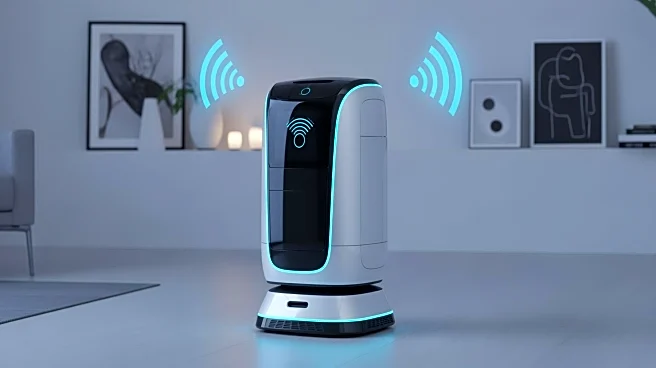What's Happening?
Neo, a humanoid robot developed by California-based company 1X, is now available for preorder at a price of $20,000. Designed as a personal assistant, Neo is capable of performing various household tasks
such as folding laundry, running a vacuum, and bringing in groceries. The robot features a tendon-driven motor system for smooth movement and can be controlled via voice commands. However, Neo's current functionality relies heavily on teleoperation, with human operators controlling it remotely. The company plans to enhance Neo's autonomous capabilities by 2026.
Why It's Important?
The introduction of Neo represents a significant step towards the integration of robotics into everyday home life. As a consumer-ready humanoid, Neo could transform how household chores are managed, potentially saving time and effort for users. However, the high cost and current reliance on teleoperation may limit its accessibility and practicality for many consumers. The development of Neo also raises important questions about privacy and the ethical implications of having AI-equipped robots in personal spaces. As technology advances, the market for home robots is likely to expand, influencing both consumer behavior and the tech industry.
What's Next?
1X plans to ship the first units of Neo to U.S. customers in 2026, with a broader international rollout expected in 2027. The company is also working on improving Neo's autonomous capabilities, aiming for the robot to perform most tasks independently by 2026. As Neo's development progresses, it will be crucial for 1X to address privacy concerns and ensure that the robot's integration into homes is both safe and effective. The success of Neo could pave the way for further advancements in home robotics, potentially leading to more affordable and versatile options in the future.
Beyond the Headlines
The deployment of Neo in homes could lead to a cultural shift in how society views and interacts with robots. As these machines become more common, there may be increased discussions around the ethical use of AI and the potential impact on employment in domestic services. Additionally, the presence of robots like Neo could influence family dynamics and the division of household labor, prompting new social norms and expectations.









